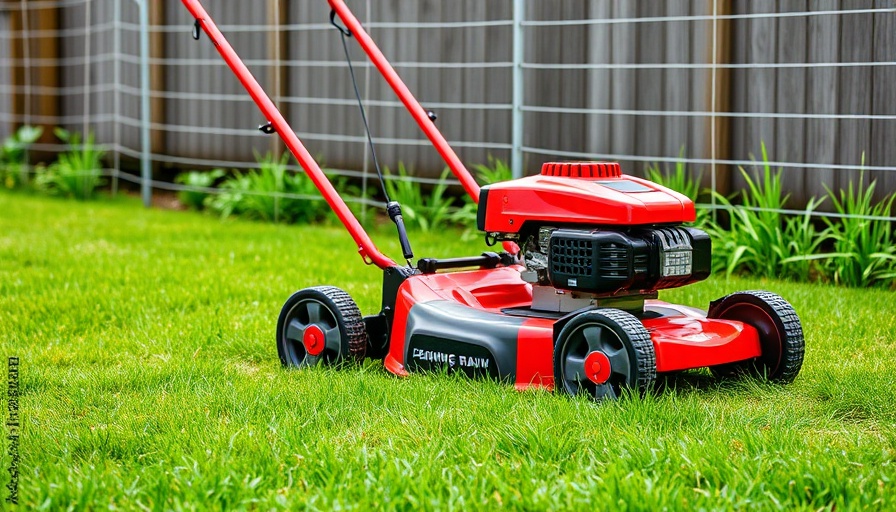
Understanding the Risk of Mowing as We Age
The arrival of spring is often a welcome sight, with blooming flowers and warm sunshine prompting many homeowners to dust off their lawnmowers. For older adults, mowing can be a rewarding way to stay active and enjoy the outdoors. However, the physical demands and risks involved can raise the question: is there an age at which it's better to hand over the mowing duties?
According to research, lawnmowers cause more than 80,000 injuries annually, particularly in vulnerable populations, including older adults and children. The majority of these injuries stem from debris strikes, falls, and mishaps during cleaning and maintenance. As we age, our physical capabilities start to decline, and this can markedly affect our ability to respond quickly in emergencies.
No Age Limit, But Awareness is Key
Experts emphasize that there is no definitive age at which one should stop mowing the lawn. Rather, the decision should depend on individual health, capability, and awareness of risks. Dr. Jordan Kapper, an emergency medicine physician, has witnessed firsthand how quickly a seemingly safe task can turn dangerous. He notes that while push mowers can cause lacerations and fractures, riding mowers can lead to serious injuries like pelvic fractures and pneumothoraces.
Dr. Matthew Segar, a cardiologist, highlights critical risks including falls, musculoskeletal injuries from repetitive motions, and heat-related illnesses. He stresses that maintaining physical fitness can allow older adults to manage physical tasks like mowing for longer, but recognizing personal limits is essential.
The Benefits of Mowing
Despite the risks, many seniors find joy and a sense of accomplishment in mowing their lawns. The aerobic activity involved is beneficial for cardiovascular health and can improve mental well-being as well; spending time outdoors has been shown to lift spirits and reduce feelings of loneliness. However, it’s vital to strike a balance between enjoying the exercise and recognizing when it may become too much.
Alternatives When Mowing Becomes Challenging
When the risks begin to outweigh the benefits, or if a senior feels unsure about mowing, there are plenty of alternatives. Hiring a landscaping service is one option, but for those looking to save money, enlisting family members or neighbors to help can also lead to stronger community ties.
Additionally, modern gardening tools like self-propelling or electric mowers can make mowing easier and safer. Older adults can also consider maintaining a smaller lawn space that requires less effort.
Recommendations for Safe Mowing
For those who choose to continue mowing their lawns, there are steps to enhance safety:
- Wear Proper Footwear: Closed-toed shoes with good grip can prevent slipping and protect the feet.
- Stay Hydrated: Keeping well-hydrated is crucial in hot weather to prevent heat-related illnesses.
- Know Your Limits: Listen to your body and take breaks as needed. If mowing becomes too strenuous, it may be time to assess whether it's safe to continue.
Conclusion: Prioritize Your Well-Being
While many older adults take great pride in maintaining their lawns, it’s crucial to be mindful of the risks involved. Assessing one’s physical capability and exploring alternatives to mowing can ensure that gardening remains an enjoyable and safe habit for years to come. Embracing safety measures and seeking help when needed can allow older adults to continue enjoying the benefits of outdoor activity without undue risk.
 Add Row
Add Row  Add Element
Add Element 


 Add Row
Add Row  Add
Add 

Write A Comment